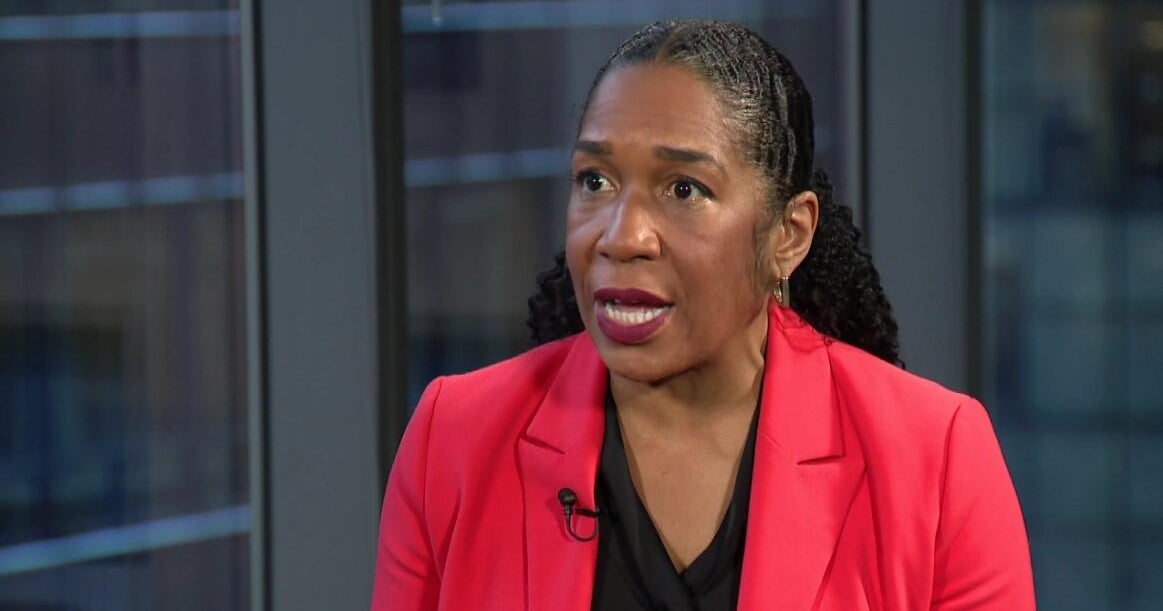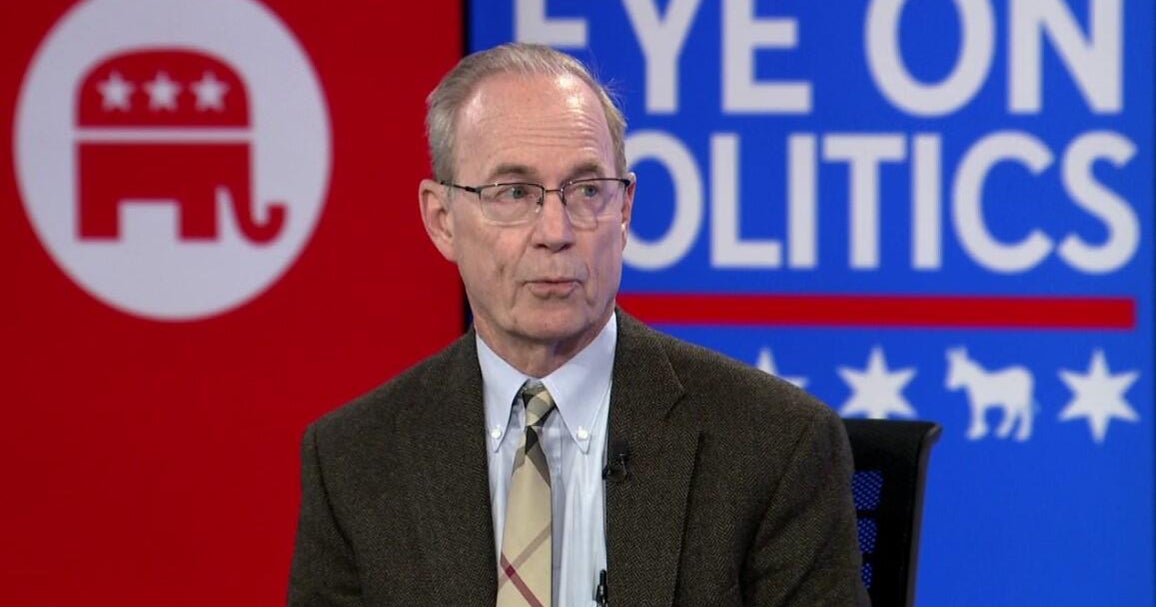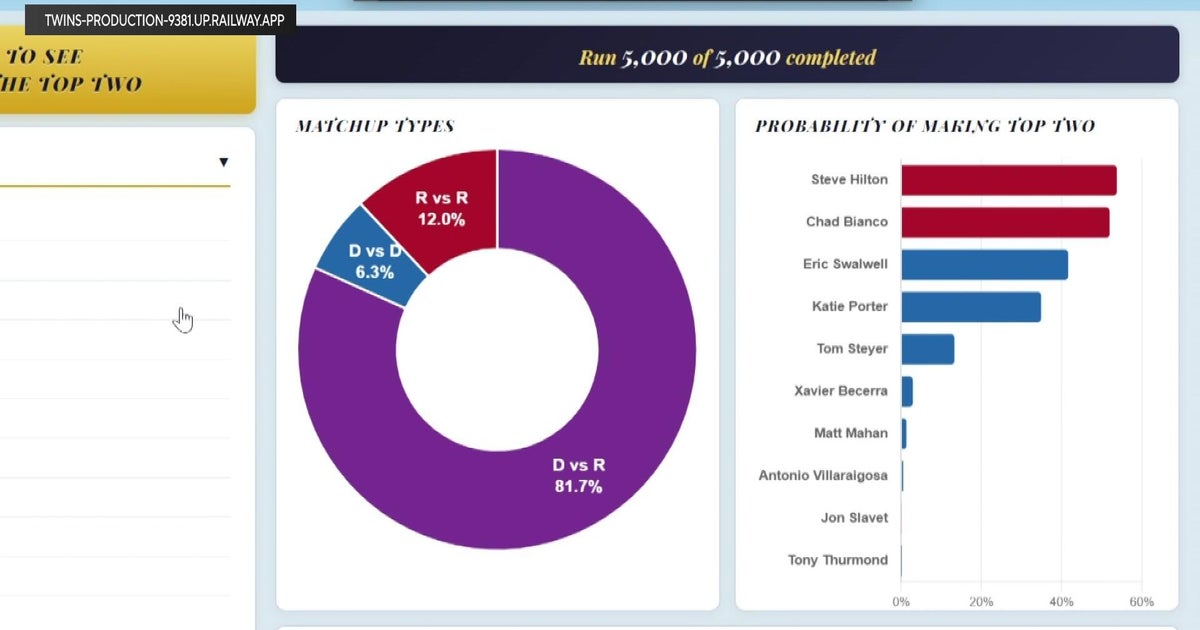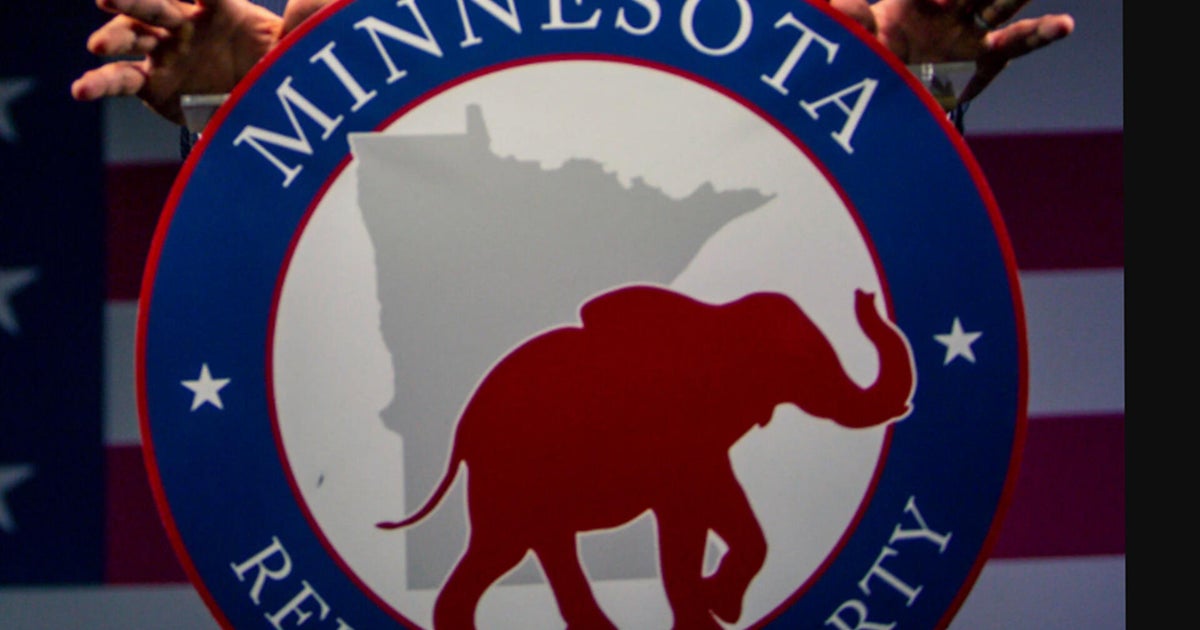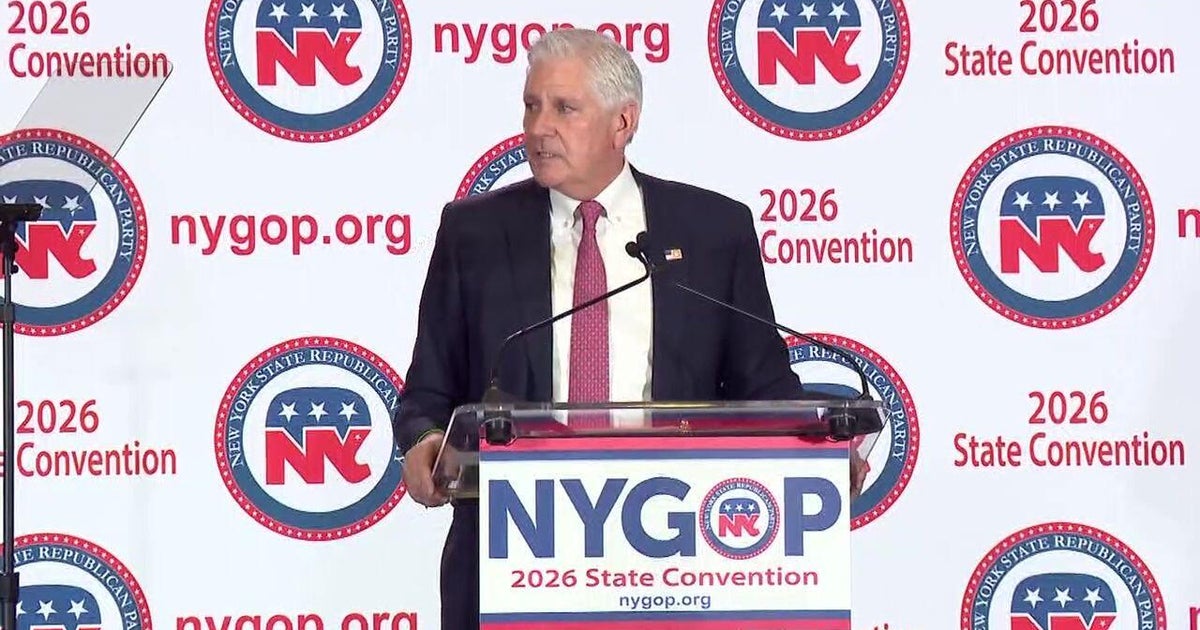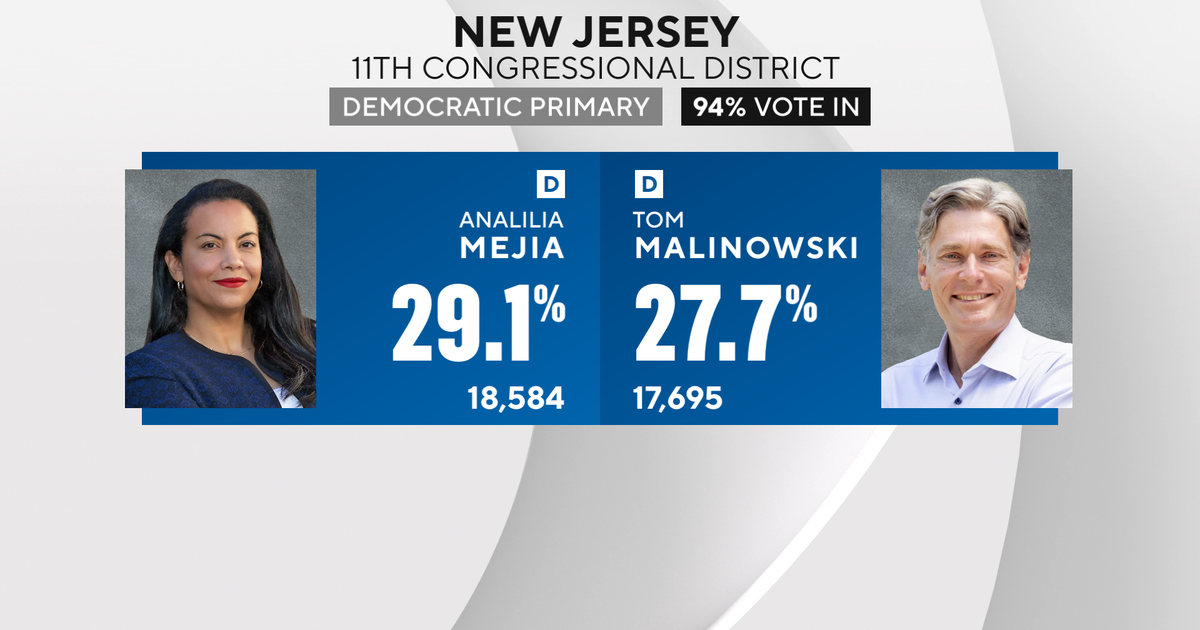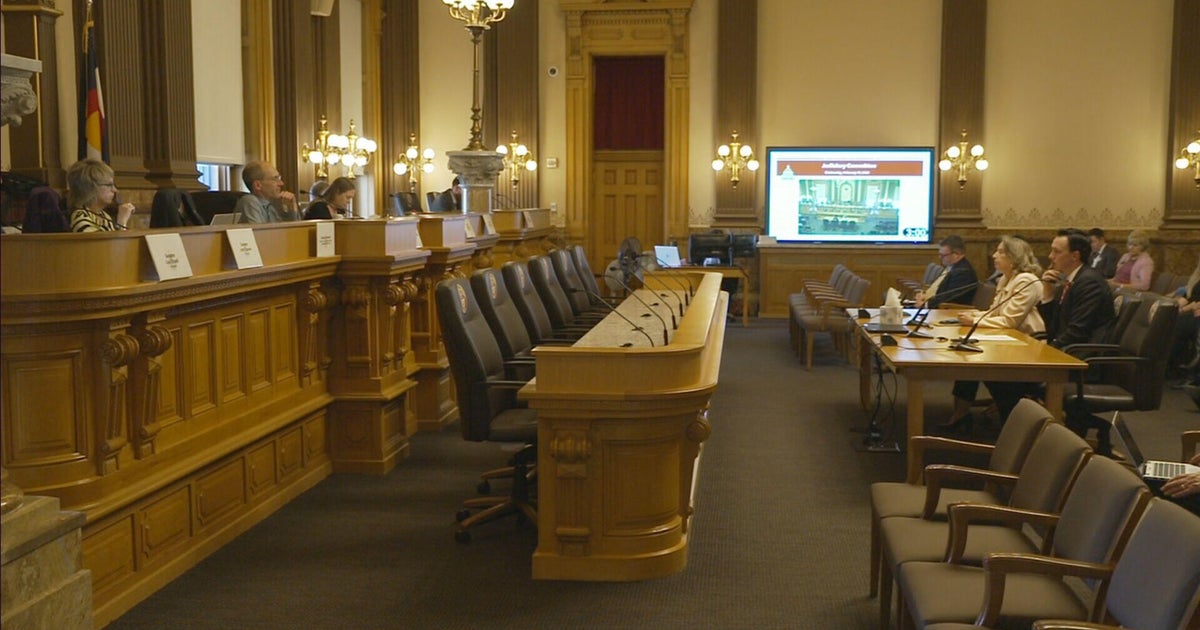Governor's Race A Dead Heat
FINAL ELECTION RESULTS: CLICK HERE
LIVE LOCAL ELECTION RESULTS: CLICK HERE
ELECTION 2010 CAMPAIGN CENTER: CLICK HERE
UPDATED 11/3/10 - 1:07 a.m.
CHICAGO (CBS) -- The race for Illinois governor is coming down to the wire, with Democratic incumbent Pat Quinn holding a razor-thin lead over Illinois State Sen. Bill Brady early Wednesday morning.
Quinn stopped just short of claiming victory, telling supporters "I believe we have won," but acknowledging there were more votes to be counted before the race is over.
Official results showed that as of 12:53 a.m., with 98 percent of precincts reporting, Quinn was leading Brady 47 percent to 46 percent, a lead of about 9,100 votes. Independent Scott Lee Cohen had 4 percent, Green Party candidate Rich Whitney had 3 percent and Libertarian Lex Green had 1 percent.
"The people have won and I believe we have won," Quinn said, "I think when all is said, we'll end up on top with the most votes," Quinn said.
"So it looks like another landslide victory is headed our way," he added, a sarcastic nod to his narrow victory in the Democratic primary, when he defeated State Comptroller Dan Hynes by about 8,000 votes.
Brady went home for the night after telling supporters that nothing would be decided anytime soon and that they should get some rest and prepare to pick up the work on Wednesday.
Earlier in the night, Quinn had as much as 64 percent of the vote, but those results were based largely on Chicago and Cook County votes and the race has gotten tighter as more results from the collar counties and downstate Illinois have come in.
Although Brady closed the gap significantly, it was clear that he would not win by the 7 percent margin his campaign had expected. In fact, of the 3 million votes that were expected to be cast, it was expected that the final margin would come down to less than 1 percent of the vote.
Brady addressed his supporters at his campaign headquarters in Bloomington shortly after midnight to tell them nothing would be decided anytime soon.
"Some of you may have realized by now I have a penchant for close elections," Brady said. He won the Republican primary by fewer than 200 votes and won his first race for the Illinois House in 1992 by only eight votes.
"Clearly, with over 3.5 million votes cast, this isn't going to be decided tonight," Brady told his supporters. "We are excited and optimistic, but we want to make sure every voter in the state of Illinois has the right to have their vote counted. ... We don't know if you want to stay tomorrow night as well, but we do know that we're going to work through this quickly to get this process done."
Quinn was also expected to address his supporters at the Hotel Allegro in downtown Chicago sometime after midnight.
Adviser Dennis Gannon, former president of the Chicago Federation of Labor, told CBS 2's Dana Kozlov that Quinn was hopeful, "but you're gonna be nervous. He's running for … the prize of all prizes here, the governor of the state of Illinois, but I think the buzz in this room, I think reflects where we believe we're at."
Gannon said the razor-thin margin was no surprise.
"I think that this is exactly where we thought we'd be. All our models are right on target," Gannon said. "I think that at the end of the day that we're gonna win this thing and things are gonna be very good here in the state of Illinois, when we can put people back to work and do what we should do for the folks and that's jobs, it's all about jobs."
Brady's finance director Ron Gidwitz said there's reason for optimism that Brady eventually can pull out a victory.
"There are several hundred precincts we've got uncounted for all kinds of reasons; broken machines, just bad communications, whatever," Gidwitz said. "Plus there are an enormous number of absentee ballots, many of which have already been received but haven't been counted."
Brady's campaign had predicted a 7-point victory for the Republican challenger and Gidwitz pointed to two factors that led to a much closer margin.
"We didn't do quite as well in the Chicago suburbs as we thought," Gidwitz said. "And, surprisingly, we thought that Scott Lee Cohen and the other (third-party) candidates would take a bigger piece of the Democrat ballot than they did."
Republicans had expected Cohen, Whitney and Green to pull in more than 10 percent of the vote combined, but they pulled in about 8 percent, according to the latest results. Gidwitz said most of those votes came from traditionally Democratic voters.
Democratic State Rep. Greg Harris said he wasn't surprised that Brady didn't do as well as the GOP expected in the suburbs.
"He's very far to the right socially and his fiscal solutions didn't make sense," Harris said. "Cutting a few cents on the dollar just did not make a lot of sense."
Quinn is hoping voters will give him a full term in office, after serving two years in the state's highest office after former Gov. Rod Blagojevich was kicked out of office amid a corruption scandal. But Republican Illinois State Sen. Bill Brady has staged a strong bid to oust the Democratic incumbent, blaming Quinn and his predecessor for the state's financial woes.
Brady, a state senator from Bloomington, has attacked Quinn for wanting to raise the state income tax. Quinn, fighting to keep the job he inherited from Blagojevich, charged that Brady would decimate education and social services if elected.
Both candidates spent much of the day Tuesday making last-minute appeals for votes in a tight race that has been filled with attack ads for weeks.
Brady has led in most polls for weeks and his campaign was optimistic Tuesday that those numbers would hold up. They took comfort in strong turnout in downstate Illinois, in particular in his hometown of Bloomington, where some voters had to wait 45 minutes or more to cast their ballots when they arrived at the polls.
"Everywhere where we focused, we've heard good things," Brady said after voting on Tuesday.
A confident Quinn voted at a Chicago church and told reporters he ran a good campaign, with no regrets.
"I'm an optimistic person. I believe we will win the election," he said.
Brady was leading in the polls for some time. The state senator from downstate Bloomington spent part of his Halloween campaigning in usually Democratic Chicago, trying to link Quinn to his disgraced processor, Rod Blagojevich.
"People are fed up with what's been going on in Illinois for the last eight years, and particularly the last two years," Brady said earlier this week. "They're looking for a better thing to believe in, and we're providing that."
Quinn is running against a tide that national pundits say will flush many incumbents from office. But he said he has the best plan to create jobs in Illinois.
The governor has remained on the attack in the final countdown to the election.
"Sen. Brady is an extremist — he's run an extreme campaign," Quinn said Monday.
Whoever wins the race will have a monumental problem on his hands. The state's $13 billion budget deficit adds up to a debt of about $1,007.75 for every man, woman and child in Illinois.
CBS 2's Jay Levine and Dana Kozlov and The Associated Press contributed to this report.
